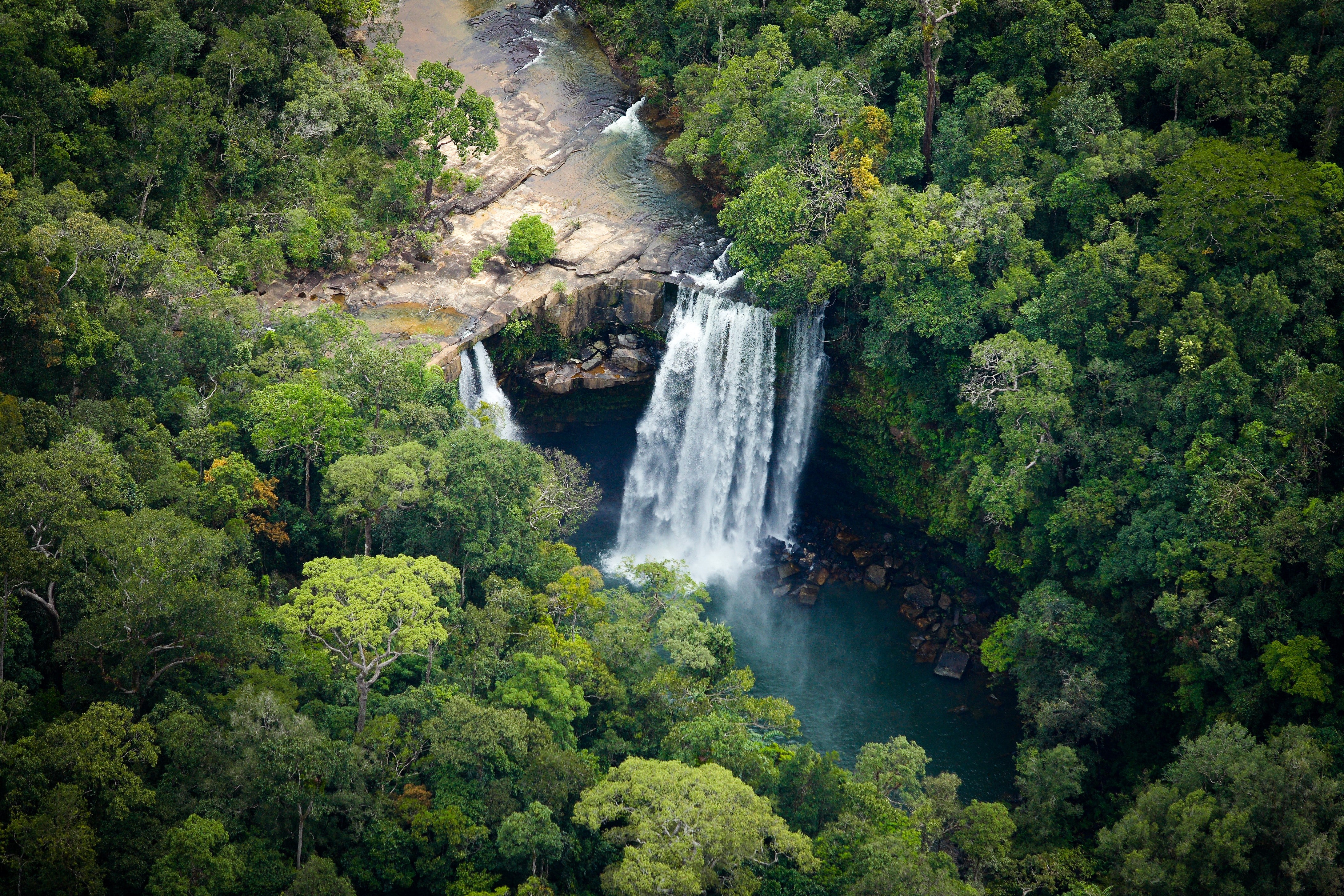 Aerial shots of a remote waterfall in the Cardamom Mountains
Aerial shots of a remote waterfall in the Cardamom Mountains
“Are there real measurable benefits from investing in forest resources? Can we show Cambodians that forests matter for our economy?”
These were the questions put to the World Bank by the senior management of Cambodia’s Ministry of Economy and Finance early in 2019. The Bank’s Environment team was in the process of finalizing the Cambodia Sustainable Landscape and Ecotourism project, a US$51 million project to help Cambodia invest in its natural capital. These questions were coming at a strategic point in time, as the Government of Cambodia had recently put about 65 percent of Cambodia’s forests under the Protected Area system and were investing public resources into their management. Responses to these questions need to show that the strategic decisions of the Government are economically sound. Today, during the international COVID crisis, these questions remain relevant.
Cambodia’s rich biodiversity provides critical ecosystem services, such as water purification, food provisioning, erosion reduction and climate regulation, which underpin the country’s economy. Key economic sectors like agriculture and tourism are dependent on these ecosystem services. In addition, the country’s forests also help to sustain Cambodia’s hydropower, an essential power source to the garment and other economic sectors. The onset of COVID-19 along with Cambodia’s impending water crisis, partly impacted by upstream dam construction along the Mekong river, further heightened by the impacts of climate change, will put increased attention and demand on the ecosystem services provided by the country’s forests.
Clearly forest resources have value, and the RGC recognizes this but, this vision is not shared by all Cambodians. There is a missed opportunity in articulating the importance of forests when not expressed in terms of monetary values and their contribution to the economy. The new World Bank report on ‘Valuing Ecosystem Services Provided by Forests in Pursat Basin Cambodia’ provides an analysis and methodology to estimate the monetary value of forest resources in the Pursat River Basin in the Cardamom Mountains in Cambodia, with the intention of answering the questions of the RGC on the measurable value of forest resources. It quantifies benefits of forest ecosystem services for water, agriculture and hydropower, ecotourism and carbon storage; effectively establishes the link between forest degradation and water flow, and offers a roadmap for scaling up ecosystem services assessment and valuation in Cambodia.
The report helps answer the questions with key messages that are supported by data:
- Economic benefits from intact forests are five times higher than the gains from cutting them down for small-scale agriculture and charcoal production.
- Maintenance costs of forests are 20 times lower than the benefits provided by forests to other economic sectors.
- Opportunities for receiving revenues from private and international sources for forest maintenance could mean zero costs for the government in the long run
This study gives a glimpse of what Cambodia’s forests are worth in monetary terms when left intact. By understanding this value, there is a strong incentive to invest resources into the sustainable management of these forest ecosystems. Their maintenance will not only help to further strengthen the Cambodian economy but will also assist in the country’s economic recovery from COVID-19. This in turn will help to safeguard the country’s natural capital and ensure a sustainable and prosperous future for Cambodia and its people.
With the partnership of the government, the World Bank plans to expand the valuation work to other key watersheds in Cambodia to develop the full picture of the benefits of Cambodia’s forests to its economy.




Join the Conversation